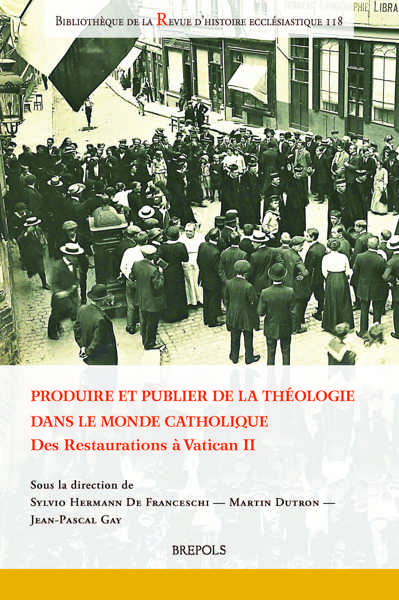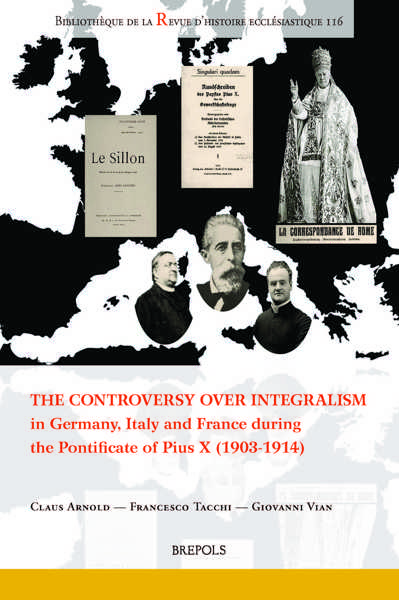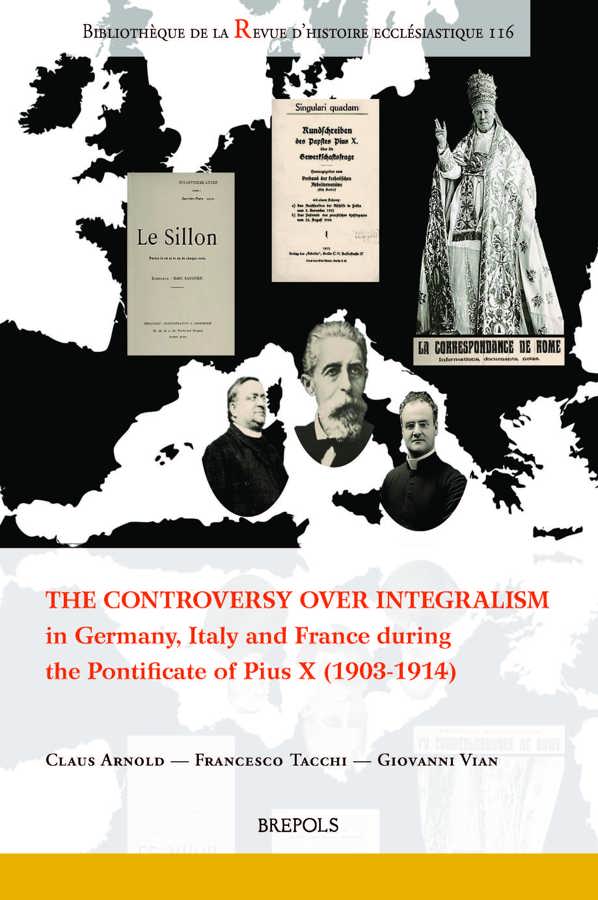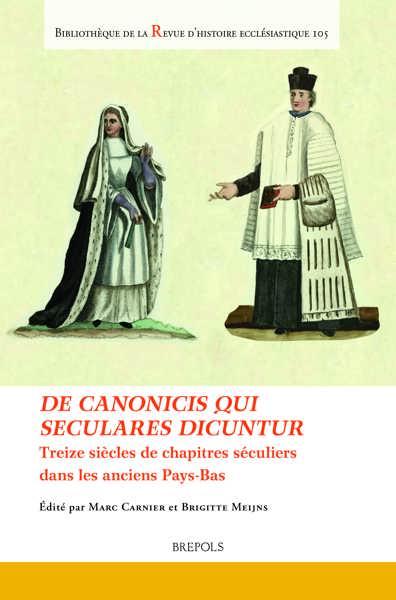
The Controversy over Integralism in Germany, Italy and France during the Pontificate of Pius X (1903-1914)
Claus Arnold, Francesco Tacchi, Giovanni Vian
- Pages: 184 p.
- Size:156 x 234 mm
- Language(s):English, French
- Publication Year:2024
- € 64,00 EXCL. VAT RETAIL PRICE
- ISBN: 978-2-503-60490-9
- Paperback
- Available
- € 64,00 EXCL. VAT RETAIL PRICE
- ISBN: 978-2-503-60493-0
- E-book
- Available
The controversy over Integralism in Italy, France and Germany, in a comparative perspective, on the basis of new material from the Vatican Archives.
"The complex relationship between religion and modernity constitutes one of the most exciting debates in the social sciences. Having banished many prejudices inherited from the era of the culture wars, historical Catholicism appears in a much more plural and complex way in its relations with the emergence of the liberal world. In fact, this constitutes one of the great virtues of the work reviewed here, since it deepens our knowledge of the controversy between integralism and modernism within the Catholic Church and does so from a comparative perspective by showing how the Roman Curia adopted a different stance toward modernism depending on the country." (Francisco Javier Ramon Solans, in The Catholic Historical Review, 110/3, 2024, p. 600)
Claus Arnold is Professor of Medieval and Modern Church History at Johannes Gutenberg University Mainz.
Francesco Tacchi is a post-doctoral Fellow in History of Christianity and the Churches at Ca' Foscari University of Venice.
Giovanni Vian is Professor for the History of Christianity and the Churches at Ca' Foscari University of Venice.
In the years after 1900 the autonomous activity of the Catholic laity in politics, culture and society was opposed by ‘integralists’ in theological circles, in the laity as well as in the clergy, and last but not least in the Roman Curia. The integralists favoured a strict confessionalism and hierarchical control over all fields of Catholic life. Pope Pius X enforced this position in Italy and in France by solemnly condemning the autonomist Christian Democracy of Romolo Murri and the ‘Sillon’ movement of Marc Sangnier. In Germany, however, compromises with the Roman authorities were possible on all fields of contention: concerning the interdenominational character of the Christian trade unions, the independence of the Centre Party from the hierarchy and also during the controversy over the ‘Catholic belles-lettres’. Finally, in the papal encyclical ‘Singulari quadam’ (1912) the interconfessional Christian trade unions were at least ‘tolerated’. The present volume analyses these struggles in a comparative perspective and, by evaluating the entire accessible archival documentation, it reconstructs for the first time the respective internal decision-making processes of the Roman Curia. The result of this entire research is a profiling of three important European Catholicisms in the controversy over integralism. This conflict had a decisive bearing on the long-term positioning of French, German and Italian Catholicism within their respective national societies.
Preface
I. The German Controversy over Integralism and the Making of the Encyclical Singulari quadam
Francesco Tacchi
II. Between Social Catholicism and Integralism. Toniolo’s "Network"
Giovanni Vian
III. Integralism in the French Context. The Conflict over the Christian Democratic Sillon and the Doctrine of Priestly Vocation by Joseph Lahitton
Claus Arnold
IV. Appendix of Documents on the Condemnation of the Sillon
Indices




